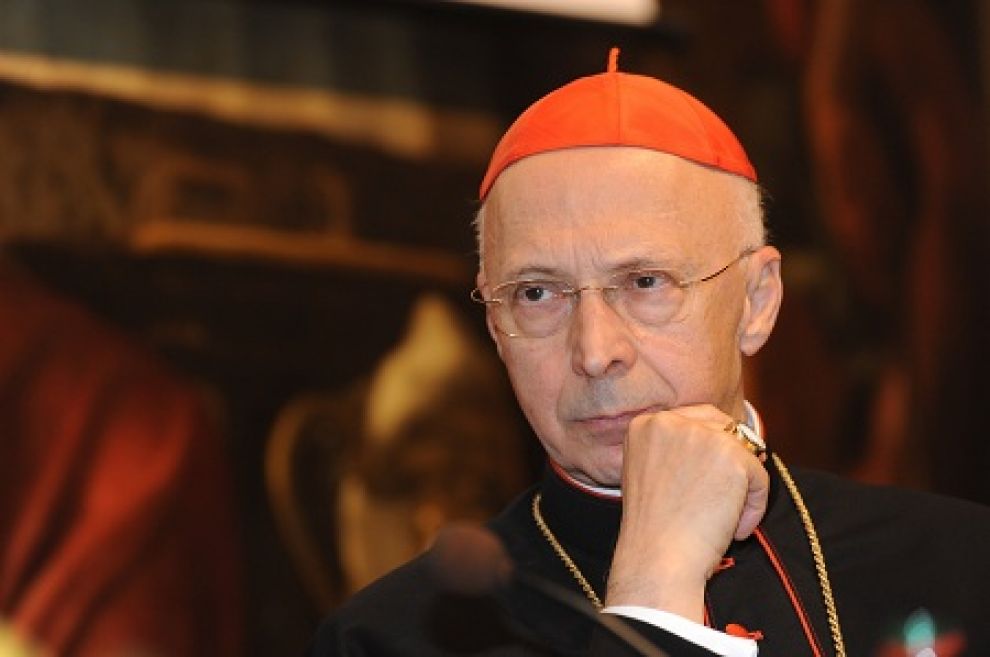CCEE-MIGRATIONS
CCEE Vice-President Cardinal Bagnasco analysed the phenomenon of refugees in Jerusalem and spoke of the next Synod on the family

Migrations and persecution of Christians are among the main themes of the plenary meeting of the bishops and cardinals presidents of European Bishops’ Conferences, (CCEE), gathered in the Holy Land (September 11-16). It’s a historic event: for the first time the bishops presidents of 35 bishops’ conferences, representing 45 European Countries, convened in the land of Jesus for their annual meeting. “We are here to give a humble, subtle – albeit concrete – token of our closeness, admiration and gratefulness to the Holy Land – Cardinal Angelo Bagnasco, president of the Italian Bishops’ Conerence, told Daniele Rocchi and Gianni Borsa for SIR Europe -, to convey our esteem to Christians living here and overseeing the holy sites, dear to the whole of humanity, to Catholics and Christians, in situations of major difficulties. Returning to the roots of our Christian faith is a major grace bestowed upon us bishops”. You mentioned Christian communities in difficulty and the thought goes to those persecuted in Syria and Iraq. Again, at Sunday’s Angelus prayer, Pope Francis recalled the “witness of so many of our brothers and sisters – youth, elderly, boys and girls, children – all persecuted, kicked out, and killed for announcing Jesus Christ”. Is it possible to stop this persecution? And how? “First of all with prayer, as Pope Francis invites us to. Second, it is necessary that the world and the media continue focusing their attention on the ongoing tragedy caused by religious and ethic persecutions. Another important point is to help Christians not to be forced to abandon their home Countries, helping them in their basic necessities, providing them with a home, education and work. It’s not easy but it’s a concrete form of support”. To this regard CEI has promoted various projects… “The Italian Church has recently earmarked some two million euros to enable 1400 children of Christian refugees welcomed in Jordan to return to school. The local bishops have told me that the children’s parents feel encouraged by this gesture, seeing their children in classrooms signals the return to normal life”. As for the persecutions, prayer and solidarity are not enough. A greater, more concrete commitment is needed on behalf of the international community. What is your opinion? “In my opinion the so-called international community could put an end to this situation, if it only wished to. Not through forceful behaviour but through different channels. What I mean is that if all the tyrants and violators of the freedom and the life of so many people were isolated though joint action, through constant, repeated and universal moral condemnations – coupled by the interruption of all business relations – the situation could change”. We are witnessing a veritable mass exodus of migrants towards Europe. New walls are being erected… The German transport minister Alexander Dobrint, a few days ago denounced the “complete failure” of the EU in the defence of its external borders, calling for the adoption of urgent measures to curb the record-breaking inflow of migrants from the Middle East… “What does it mean that Europe is unable to defend its external borders? Does it entail placing barbed wire or erecting walls? This is not the criterion of a civilized Europe! It’s useless to wait for this phenomenon to disappear from Europe. People from the South of the world are on the move, they follow the glimpse of a better life, and nobody will stop them. That’s why I continue saying that not only Europe should take action – in fact it acted very late -. We must remember that Italy was the first Country to take action, with great generosity, and it did its best. But also the UN should seriously take into account this situation at international level”. During the past days the bishops have met many families from the local community and listened to their needs, worsened by local conflicts. The greatly anticipated ordinary Synod on the Family will take place in less than a month. In realistic terms, what should we expect from this event? “The Pope has collected and given shape to the concerns of all his shepherds and bishops. The question is how come so many young people don’t long to get married. It seems as if they were afraid to have a family. And why are so many emotional relations fragile? Why are there so many divisions, separations and divorces? What can be done to promote affective education, which nowadays should start very at a very early stage? Such education should take place appropriately, without the distortions that many advocate… I refer to the gender theory… These are the basic problems that the Synod is called to address, along with other themes – that characterised the first part of the Synod – in a serene and loyal manner, together with the Holy Father”.